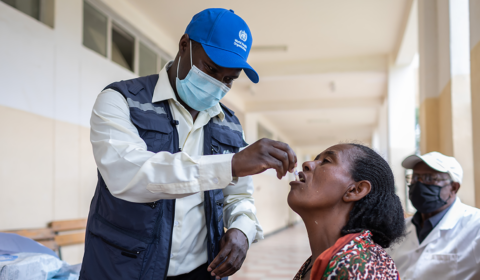In a bid to safeguard the health and well-being of students, educational authorities in South Sudan have taken the unprecedented decision to close schools across the nation in preparation for a 45C heatwave.
South Sudan, already known for its scorching temperatures, has experienced an unprecedented rise in mercury levels over the past weeks.
According to the country’s Ministry of Environment and Forestry advisory, temperatures have been soaring well above 40C and are expected to rise up to 45C for two consecutive weeks. This has already rendered teaching and learning activities nearly impossible.
Authorities expressed grave concerns about the health risks posed by the oppressive heatwave, particularly for young children and adolescents who are more vulnerable to heat-related illnesses. Prolonged exposure to such extreme heat can lead to dehydration, heat exhaustion, and even heatstroke, obviously placing young people at significant risk.
‘The safety and well-being of our students and staff are our top priorities,’ remarked Acting Education Minister, Martin Tako Moyi. ‘Given the severity of the current heatwave, it is imperative that we take proactive measures to protect our educational community from potential harm.’
🔥 Urgent Announcement 🔥
Due to the intense heat waves sweeping across South Sudan, and in the interest of students’ health and safety, the Ministry of General Education and Health has decided to temporarily close all schools until further notice. #HeatWaveSafety #Education pic.twitter.com/cTRkMyfHRX
— Ministry of General Education and Instruction SSD (@MinistrySsd) March 16, 2024
While most welcomed the move as a necessary precautionary measure, some expressed concerns about the disruption it would cause to their children’s education. Nonetheless, the general consensus is that the health and safety of students should take precedence over academic pursuits.
In addition to closing schools, authorities have issued advisories urging residents to take precautions to beat the heat.
People are advised to stay indoors during the hottest hours of the day, stay hydrated by drinking plenty of water, and avoid strenuous outdoor activities. Vulnerable populations, such as the elderly and individuals with pre-existing health conditions, are especially encouraged to take extra precautions to avoid heat-related illnesses.
The heatwave in South Sudan is part of a broader trend of extreme weather events occurring with increasing frequency and intensity around the globe. Climate scientists warn that rising temperatures, driven by human-induced climate change, are likely to exacerbate heatwaves, droughts, and other extreme weather phenomena in the years to come globally.
Scientists asserted last week that a heatwave in West Africa was made 4C hotter – and was ‘supercharged’ – by emissions created by humans. The frequency of major heatwaves has reportedly also accelerated from once a century to a once a decade occurrence.
As South Sudan struggles with the challenges posed by the current heatwave, authorities are working to implement measures to mitigate its impact on the population. Efforts are underway to provide relief assistance to communities affected by the extreme heat, including the distribution of emergency supplies such as water, and medical assistance.
In the meantime, educational and health authorities are closely monitoring weather forecasts in the hope of reopening schools as soon as conditions permit. We only hope that students can resume their studies without further disruption once the heatwave subsides.

















